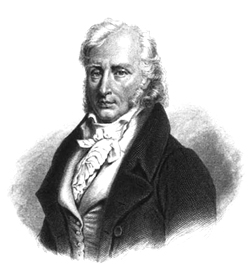Liberty Matters
Constant on Religious Fanaticism

Before our conversation ends, it might be useful to add one final note about how Constant's defense of religion was also a strong indictment of fanaticism. Alan Kahan's original essay made a few remarks on this important topic, noting Constant's opposition to the unlimited power of the priesthood. Not only did Constant advocate "freedom of worship without restriction, without privilege, without even forcing individuals… to declare their preference for a particular form of religion" (Principles of Politics, 1988, p. 274); he also opposed any form of intolerance, regardless of the forms under which it seeks to disguise itself. For Constant, Rousseau's endorsement of a "purely civil profession of faith" in Book IV of On the Social Contract was a clear example of intolerance that sanctioned many "nefarious errors" (Principles of Politics, p. 275) leading to political and religious fanaticism. Exclusion, oppression, dogmatism, "crude fetishism," and discrimination will always be the inevitable outcome of fanaticism. The temptation to condemn sectarians and enforce a single set of principles explains why, in Constant's words, religion will always have "its exiles, its dungeons, its poison, or its pyres" (On Religion, p. 914) if religious liberties are not observed. No mystical autocracy can transform evil into good. Persecution will always be an evil as long as it seeks to force people to believe in a fixed and immutable religious doctrine. In Constant's view, religion should never serve as a pretext for the existence of a body charged with teaching and maintaining religious dogmas. Properly understood, religion is and will always remain perfectible and may be improved over time. Anyone who wants to properly honor religion "must respect its progress" (On Religion, p. 920). That is why I believe that the Constant's conclusion remains as valid today as it was in his own time: "The complete and utter freedom of worship is as favorable to religion, as it is in accordance with justice" (Principles of Politics, p. 276). It is a powerful and noble message that deserves to be heard more in our age of increasing intransigence.
Copyright and Fair Use Statement
“Liberty Matters” is the copyright of Liberty Fund, Inc. This material is put on line to further the educational goals of Liberty Fund, Inc. These essays and responses may be quoted and otherwise used under “fair use” provisions for educational and academic purposes. To reprint these essays in course booklets requires the prior permission of Liberty Fund, Inc. Please contact oll@libertyfund.org if you have any questions.